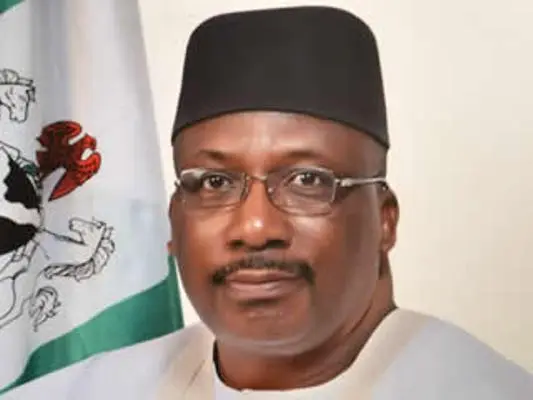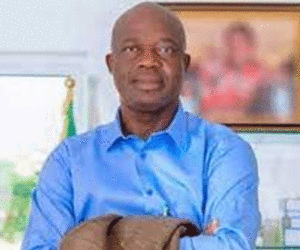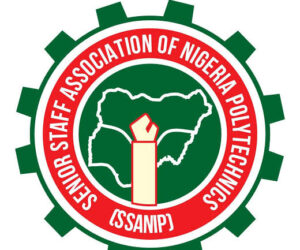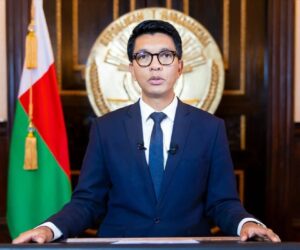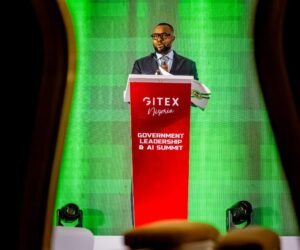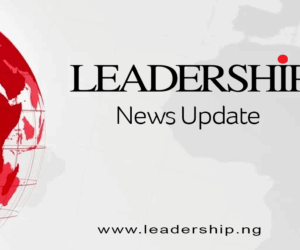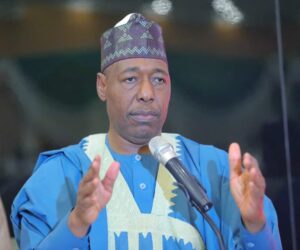1
…Worried Insecurity Worsening Despite Increased Allocations
…Says America Does Not Protect Anybody’s Interest
ABUJA – Former Chief of Army Staff, Lt. General Abdulrahman Dambazau (rtd.), has identified lack of national unity as one of the fundamental obstacles militating against the fight against insecurity in Nigeria.
Dambazau also lamented that Nigeria’s insecurity is worsening despite increased budgetary allocations and the deployment of military resources across all geo-political zones in the country.
Dambazau, who was the guest speaker at the 7th Annual Public Lecture organised by the Just Friends Club of Nigeria in Abuja on Tuesday, fingered poor governance, pervasive corruption, poverty, inadequate welfare for security personnel, insufficient coordination among security agencies and underdeveloped criminal justice institutions as some of the root causes and drivers of insecurity in Nigeria.
According to him, “Despite increased budgetary allocations and the deployment of military resources across all geopolitical zones since 1999, the anticipated improvements in security have remained elusive.
“This raises critical question: Why do threats persist despite significant investments?
“The persistence of Nigeria’s security challenges can be attributed to a complex interplay of root causes, triggers, and drivers.
“Religious and ethnic intolerance frequently clouds objective reasoning, leading to a fragmented national perspective and undermining collective efforts to address insecurity.
“Key drivers include poor governance, inadequate welfare for security personnel, insufficient coordination among security agencies and underdeveloped criminal justice institutions.
“Additional factors, such as limited legislative oversight, corruption, inconsistent enforcement of law and order, an overstretched military, misallocated police resources, under-utilised civil defence units, and the absence of a comprehensive strategy for rural security, further exacerbate the situation.
“Addressing these multifaceted issues requires a coordinated approach involving government agencies, community leaders, and regional and international partners.
“Military solutions alone are insufficient; a multidimensional strategy that incorporates social, economic, and governance reforms is essential for sustainable security in Nigeria.”
Speaking on poor governance in Nigeria, Dambazau said poor or bad governance, in the context of security governance, is another major reason Nigeria’s security threats persist.
He pointed out that global rating or ranking in governance of Nigeria is nothing to write home about.
According to him, “The World Economic 2025 report gives Nigeria a grade D on an A – E scale and assessment based on corruption perception, rule of law, press freedom, and political rights.
“Likewise, the Global Governance Index (2024) ranks Nigeria 169th among 191 countries assessed, with Nigeria scoring 33.63% compared to the global average of 43%.
“Chandler Good Government Index 2025 ranks Nigeria 116 out of 120 countries assessed, with an index score of 0.289.
“Coming home to Africa, the 2024 Mo Ibrahim Index of African Governance ranked Nigeria 33rd among 54 African countries.
“This rating does not support the claim that Nigeria is the ‘giant of Africa’, probably in terms of population only.
“Specifically, on the governance of the security sector, the World Internal Security and Police Index (WISPI) ranked Nigeria 122nd out of 125 countries in 2023.”
Dambazau, who is also the former Minister of Interior, identified key factors such as weak oversight, corruption, and lack of capacity and resources within security institutions for the dysmal ratings.
He further identified lack of national unity as one of the fundamental obstacles militating against the fight against insecurity in Nigeria.
He said: “Divisions along ethnic, regional, and religious lines continue to undermine collective efforts to confront the insecurity.
“Some elite promote narratives that question the legitimacy of Nigeria’s unity, encouraging followers to view national issues through narrow regional or religious perspectives rather than as shared challenges requiring unified action.
“Unfortunately, violent non-state actors who appear as insurgents, secessionists, or terrorists take advantage of this gap to carry out their dastardly acts against the people.”
Commenting on the recent designation of Nigeria as ‘country of particular concern” by United States President Donald Trump, the former Chief of Army Staff argued that America wants to protect its interests in Nigeria.
“America does not protect anybody’s interest. It protects theirs. We must understand this.
“In the more than ten years of US presence in Niger, where it maintained two military bases, what did the US do to prevent the growth of security challenges?
“It is also on record that at the initial second coming of the Trump administration, US Congressmen accused USAID of terrorism financing in Africa.
“I think the US is looking for an opportunity to establish an alternative base in Nigeria, a country known to protect only its interests by any means possible, including the use of force,” he said.
Dambauzau, therefore, advocated holistic and comprehensive reform of the Nigeria’s security architecture.
To quote him: “There are several reasons Nigeria’s security sector needs to be reformed. Although Nigeria’s democracy has been uninterrupted since 1999, the impact of colonialism and over 30 years of military rule is still being felt within the security environment.
Also speaking, Prof. Tonie Iredia, former Director General of Nigerian Television Authority (NTA), commended the Just Friends Club of Nigeria for organising the public lecture.
Iredia, chairman of the occasion, called for the implementation of the recommendations of the various security summits and conferences.
He called for the establishment of state policing to address the perennial security challenges confronting the country.
While calling for better welfare for security personnel, the former Director General of NTA, decried the non-release of funds and non-implementation of budgets in the country.
Earlier, Mr. Fred Ohwahwa, President of Just Friends Club of Nigeria, said since its inception in 2013, the Club has stood for social good, civic responsibility, and national progress.
Ohwahwa pointed out that dialogue, awareness, and collective engagement are key to addressing the pressing issues confronting Nigeria.
While acknowledging that Nigeria has continued to face multifaceted security challenges such as insurgency, banditry, kidnapping, communal conflicts, and cyber threats, among others, he underscored the need for Nigeria to put her house in order to forestall the invasion of Nigeria by United States troops.
The theme of the public lecture is ‘Nigeria’s Security Challenges and the Quest for National Cohesion: A New Paradigm for Internal Security Architecture.’

